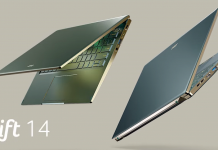Last updated on December 8th, 2022 at 02:47 pm
This can lead to poor performance.
Intel Rocket Lake-S processors are due out before the end of this quarter. We have already talked about the parameters of many models, including the top ones.

For some reason, Intel will lower the base frequencies of the new processors by 500-800 MHz relative to the current models. This applies to the energy-efficient Rocket Lake-S
Now the turn has come about the energy-efficient CPUs of the new line. There will be at least five such models, and they are quite different from the current models. The point is that the bass frequencies will be significantly reduced. It will look like this:
- Core i9-11900T – 1.5 GHz (Core i9-10900T – 1.9 GHz)
- Core i7-11700T – 1.4 GHz (2.0 GHz)
- Core i5-11600T – 1.7 GHz (2.4 GHz)
- Core i5-11500T – 1.5 GHz (2.3 GHz)
- Core i5-11400T – 1.3 GHz (2.0 GHz)
- Core i3-10305T – 3.0 GHz (3.0 GHz)
- Core i3-10105T – 3.0 GHz (3.0 GHz)
For starters, it’s worth noting that the Core i3, judging by the available data, will belong to the Comment Lake Refresh line and not Rocket Lake. Therefore, their base frequencies will remain unchanged. As for the first five CPUs, as you can see from the brackets’ data, the bass frequencies of the corresponding current models are noticeably higher. The difference sometimes reaches 800 MHz, and this is an abyss. Of course, the new items will be based on the new architecture, which, as the first tests show, provides a good increase in performance, but the huge difference in frequencies can not only neutralize the gain but lead to the fact that the new CPUs will be slower than the old ones. And this is especially true of the top-end Core i9-11900T, which will also lose two cores in comparison with the Core i9-10900T. On the other hand, maximum performance is still provided at maximum frequencies,
However, why the new CPUs will receive such low bass frequencies is not yet clear. Yes, there are hints that the new products have problems with power consumption, but this is true for the maximum frequencies. Perhaps significantly reduced base frequencies are needed so that the new CPUs consume much less power in low load modes.




